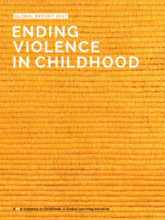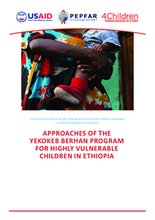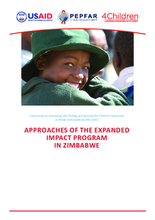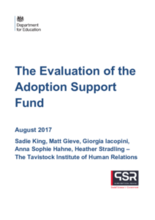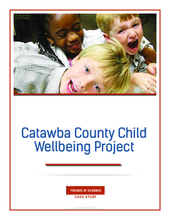Displaying 461 - 470 of 947
The report compiles information from a series of global research papers commissioned by Know Violence, presenting the scale and scope of childhood violence globally. Examples of preventative efforts from governments, communities, and organizations are provided to illustrate the feasibility of preventing violence on local and national levels.
The purpose of this study is to determine which factors associated with foster care agencies contribute to higher levels of foster carer satisfaction.
The purpose of this article is to explore how child sexual abuse (CSA) prevention opportunities can include parents in new and innovative ways.
This study is the first randomized controlled trial design to rigorously test the effectiveness of a parenting program on reducing the risk of child maltreatment in sub-Saharan Africa using both observational and self-report assessments.
This paper addresses the challenges and benefits of involving biological parents in group homes in Israel and presents various means to encourage their involvement in care.
In this case study, Coordinating Comprehensive Care of Children (4Children) documents and evaluates the work of Pact's Yekokeb Berhan Program for Highly Vulnerable Children in Ethiopia.
In this case study, Coordinating Comprehensive Care of Children (4Children) documents and evaluates the work of the World Education/Bantwana Expanded IMPACT program in Zimbabwe.
This paper provides evidence-based guidance on the use of family interventions involving children with a history of institutionalization prior to their placement in family-based care through foster care, adoption, or reunification with their families.
This report presents the findings of an evaluation of the UK's Adoption Support Fund undertaken by the Tavistock Institute of Human Relations.
This report is a case study of the Child Wellbeing Project, which sought to address the reduction of services to families post-care compared to available in-care services to prevent foster care re-entry, ensure permanence, and improve long-term outcomes for children.

